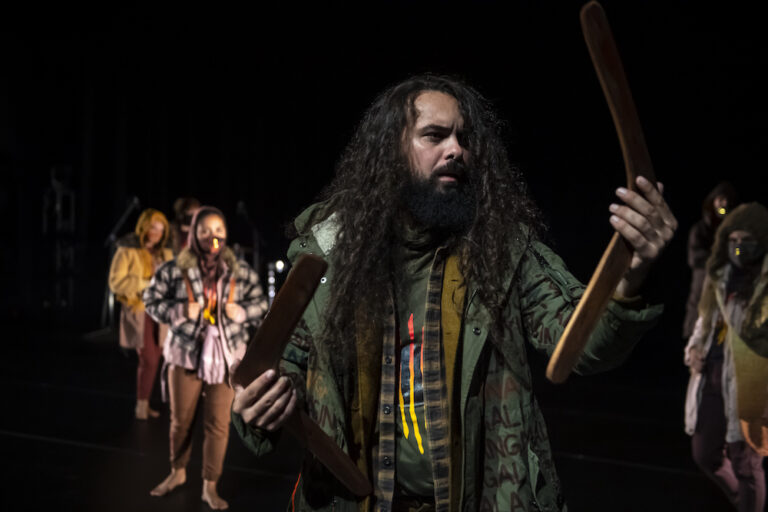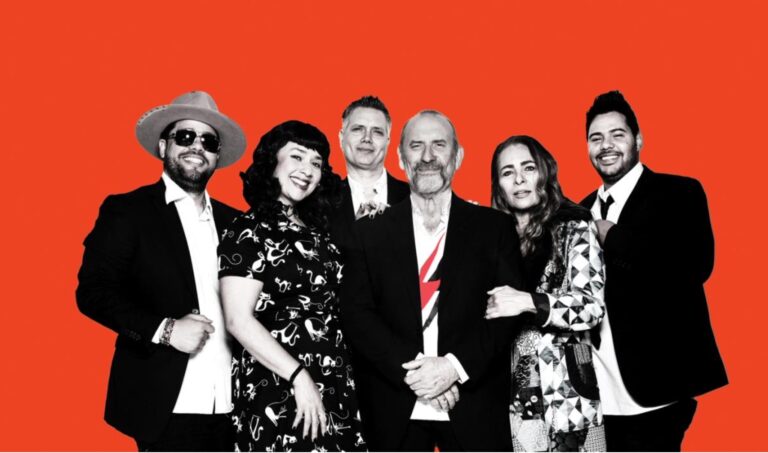
Wrecking balls hang in the balance

BY WENDY BACON
UPDATE: On Friday, Justice Pain refused to continue the injunction. This means demolition is underway inside the stadium. However Local Democracy Matters have appealed and will be back in court on Monday. City Hub paid a visit this morning and you can hear internal parts of the stadium crashing to the ground. They are using high fences with few gaps so it is impossible to see what is happening inside the stadium. Lendlease is certainly swinging its wrecking balls. So far the roof is intact, which is probably the main issue. The rest could be refurbished if Labor wins government.
Waverley Council and Local Democracy Matter lose legal challenge
On Wednesday the NSW Land and Environment Court found that the Minister’s consent to begin demolition of the existing Sydney Football Stadium (SFS) was valid, leaving the possibility that the part of the roof could be removed before the State election in two weeks. Waverley Council and community group Local Democracy Matters are considering whether to appeal.
The injunction on demolition remains in place at least until tomorrow when there will be another court hearing.
Outside the Court, Mike Dailey, the Leader of the Opposition, said he was disappointed but argued that if the Premier cared about democracy she would not send in the wrecking balls two weeks before an election. “We respect the legal decision,” he said, “but there is also the moral decision.”
Local Democracy Matters spokesperson Chris Maltby also said he was disappointed, ” I thought we had a strong case and we have not ruled out an appeal.” ( An appeal would carry more financial risks.) Maltby also called on the Premier as an “act of good faith” not to knock down the stadium.
Despite the loss, if NSW Labor wins government on March 23, the Sydney Football Stadium will at most have lost part of its roof. But Sydney Cricket and Sports Ground Trust chairperson Tony Shepherd and most of its Board will be out the door.
If Gladys Berejiklian is returned as Premier, the stadium will be rubble in a few months.
Labor to sack trustees
Opposition Leader Michael Daley’s intention to sack the trustees was revealed during an exchange with broadcaster 2GB’s Alan Jones, who has been on the Board for 30 years.
What was already a big election issue catapulted up the news agenda.
Premier Gladys Berejiklian defended the Board, calling Daley’s announcement “hot headed”.
On air, the Daley decision did not sound at all as if it were a spur of the moment.
In five seconds, he demonstrated that he could stand up to Alan Jones, who is notorious for standing over NSW governments, both Liberal and Labor.
While Alan Jones is an enthusiastic cheerleader for the knockdown, Sydney Cricket and Sports Ground Trust (SCSGT) Chairperson Tony Shepherd and Premier Gladys Berejiklian stand together at the heart of the unpopular $730 million deal.
Back in early January, Shepherd was sweating on the stadium demolition. So much so, he boasted to the media that screens were already down, turf uprooted and chairs removed. There were photos suggesting he was telling the truth. The bulldozers were ready to roll, he said.
But according to its website, INSW and Lendlease did not fulfil conditions for beginning the “soft strip” until January 31. Did the “soft strip” begin in breach of conditions or was someone misleading the media? Does NSW Planning even care?
Flawed process
Justice Nicola Pain held that although Waverley Council and Local Democracy Matters raised serious questions about the validity of the decision, it was valid. This should not be interpreted as meaning that the planning process is not flawed.
This is how the process works. Gladys Berejiklian and her cabinet decide to do a project. The Planning process that follows can only be described as enabling rather than assessing the merits of the project.
The first issue is that you can “stage” your project. This means that if your development needs fast-tracking, you can postpone important environmental investigations until a later stage. If you have to accept certain conditions to gain approval for Stage One, you can also apply for a modification to the consent later on. Approval conditions can also be staged so that an action that needs to be completed before demolition begins can be shifted to a later date. This has already happened in the Stadium case. As with WestCONnex, consultation is rushed, submissions ignored and conditions that seem clear in the approval document become a moveable feast. All of this particularly applies to State Significant projects, which include the Sydney Football Stadium and WestConnex. Under the ‘critical state significant infrastructure rules’ that apply to WestConnex, it was not even have been possible to have a court case like the Sydney Stadium one. Conditions are breached but unless members of the public lay complaints and insist on an investigation, they are usually ignored.
Trustees’ Power networks
Shepherd describes the Board as a “diverse, competent group”. In fact, the Board is a collection of 12 powerful men and two women with connections across racing, hotels, property development, and management of elite sports and events.
The stadium rebuild is part of a much bigger vision for the development of the Moore Park area including the adjacent Entertainment Quarter and Fox Studios, NSW Racing and a huge Moore Park road interchange that will channel thousands of cars from the Transurban WestConnex tollway interchange at St Peters.
Shepherd’s interests in tollways and sport perfectly straddle this vision. After being involved in several tollways that went broke, he was a driving force behind the decision to build a 33-kilometre WestConnex tollway system after the LNP came to power in 2012. The then O’Farrell government appointed him as the Chair of the WestConnex Delivery Authority. Westconnex has now been sold to Transurban of which Shepherd was a founding Director.
The man who put him in that position, Barry O’Farrell, is also a trustee. He resigned as Premier after admitting that he lied to the NSW Independent Commission Against Corruption about a gift of a $3,000 bottle of wine. He is now CEO of Racing Australia.
While Premier, O’Farrell appointed Liberal Party donor Nihal Gupta as a Trustee. Gupta was briefly chair of SBS until he resigned with unanswered questions about the reasons for his appointment.
Deputy Chair of the Trustees is Rod McGeogh who steered Sydney’s Olympic Bid. He has a long international career in banking and property investment. He is also a director of Destination NSW that pursues international events.
The Board has media links including John Hartigan, ex CEO of Newscorp Australia. Ex ABC Chair businessman and climate sceptic Maurice Newman also has a seat.
One of the two women is Katie Page, the CEO of Harvey Norman of which her husband Gerry Harvey is the Chairperson. Jones is involved in racing, sports management, tourism and luxury apartments.
In 2017, Greens Planning spokesperson David Shoebridge MLC in an interview with City Hub described the Board as “a classic Sydney tale. 10 men and women in a well-stocked boardroom decide the future of our city and tell the government to tear” down stadiums and rebuild them … “Meanwhile the residents whose kids play sport on the weekend run raffles and sausage sizzles to fix the broken toilets at their soccer field. The priorities are so distorted it would be comical if our planning system wasn’t so brazenly corrupted.” This week, he agreed with Daley that the Board should be sacked, and then a new one created from everyday people who understand what it is really like to live in Sydney.”
Most of the government appointed Trustees shared a vision. The next task was to fast track approval to build it.
The Premier and the Trust chairman meet to discuss the stadium
In January 2017, Berejiklian took over from Premier Michael Baird, who did not support the Sydney Football Stadium demolition, much to the displeasure of Shepherd.
As was revealed at a Parliamentary inquiry last year, the Premier wrote a note to Shepherd thanking him for congratulating her on becoming Premier, promising to deliver on infrastructure and looking forward to meeting up soon – “Let me know if it’s taking too long and I will move it along”.
In November 2017, she announced a new stadium to replace the stadium at Moore Park and a replacement stadium for the Olympic Park stadium. After journalist Peter Fitzsimmons organised a petition of 200,000 signatures, the government changed tack. In March 2018, Berejiklian and the Minister for WestConnex and Sport announced that only the Moore Park stadium would be demolished and rebuilt.
Astonishingly, Berejiklian announced that construction would begin in 2018.
At this point, there wasn’t even a development application.
There was no time to waste. But Berejiklian knew that there was a trusted man at Infrastructure NSW. This was INSW Project Director David Riches.
A week after the Premier’s announcement, David Riches wrote to NSW Planning Secretary Carolyn McNally requesting Secretary’s Environmental Assessment Requirements. This is the first step in the Planning process. McNally is on the Board of INSW, that supported the project. It was not until a few days later that the Premier signed the necessary direction ordering INSW to take responsibility for the development.
Memory failures
In June 2017, Riches was up for reappointment on a salary of $452,250. In an application to the Remuneration Tribunal to pay him more, the Premier described his job as delivery of “high-risk infrastructure projects”. She had been advised that retaining Mr Riches as Head was “essential to the delivery of high-risk projects.”
The Tribunal granted the Premier’s request for a rise to $576,345 a year.
Riches, who was the only witness in the court case, undoubtedly has many strengths. Surprisingly, memory is not his strong suit.
During the bare minimum consultation period of 28 days during June last year, a contamination report was completed that identified boreholes on the site that contained levels of carcinogenic substances above the levels allowed for recreational sites. Shortly afterwards, Riches and another INSW project officer met with NSW Planning. Questioned by Philip Cray SC about what happened, Riches could not recall whether this report, which is still not public, There were other matters he also could not recall.
But Riches did manage to get project approval in record time, not quite in time to begin work in 2018, but near enough. Well worth the money.
Wendy Bacon is a past Professor of Journalism at UTS and blogs at wendybacon.com.









